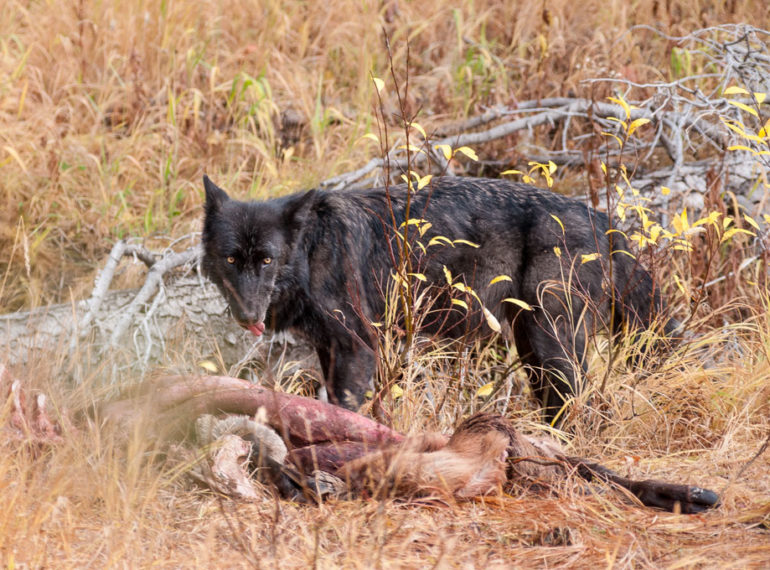by Mark Huffman/Jackson Hole News & Guide | MARCH 6, 2017
A court decision handed down Friday that has wolves headed for management by the state of Wyoming has spurred a flurry of praise and condemnation.
The U.S. appeals court ruling is a major step toward removing wolves in Wyoming from the Endangered Species Act list. The original 2012 ruling that had the wolves bound for delisting was held up by a 2014 ruling that said the plan to give Wyoming control over wolf management was flawed because the rules were administrative rather than included in statute.
Friday’s decision was hailed by Gov. Matt Mead and by the state’s two U.S. senators and lone member of the U.S. House. All are Republicans.
The ruling was criticized by environmental groups.
Mead called the ruling “the right decision for wolves and Wyoming” and said he was “pleased” with the turnaround.
Even more enthusiastic was Rep. Liz Cheney, a Jackson Hole resident. She said the D.C. Circuit Court of Appeals “righted a wrong for Wyoming today.”
“This ruling nullifies the lower court’s decision … and reaffirms Wyoming’s authority to manage our gray wolf population,” Cheney said in a statement. “While this ruling is welcome news to Wyoming, the long and drawn-out process has highlighted why Endangered Species Act reforms are so badly needed.”
Cheney said “sound science, not the courts, should decide when a species is recovered.”
Sen. Mike Enzi called the ruling “a win for Wyoming and all those who have worked so hard to return management of the gray wolf to the state.”
Sen. John Barrasso said that the state’s management plan was adequate and also that state control was in keeping with his support for local government authority.
“I am pleased that the court agrees that the wolf has recovered enough to be removed from the endangered species list,” the junior senator said. “As a result of this ruling the state’s wolves will be under the control of Wyoming, not Washington.”
The reaction among environmental groups was different, especially given that final delisting will allow the state to resume wolf hunting everywhere in the state outside the national parks. The wolf hunting system, in effect for two years before the 2014 decision, regulated hunting in areas in northwest Wyoming while categorizing wolves as predators that could be shot on sight at any time in 80 percent of the state.
“Wyoming’s plan to shoot wolves on sight throughout most of the state was a bad idea when it was proposed, and it’s a bad idea now,” said Rebecca Riley, senior attorney with the Natural Resources Defense Council. “The court’s decision to lift federal protections for wolves in Wyoming will be a step backwards for wolf recovery in the West.”
The lead attorney in the case for Earthjustice, Timothy Preso, spoke against the ruling on behalf of Defenders of Wildlife, the Sierra Club, the Center for Biological Diversity, the Humane Society of the United States and the Fund for Animals.
“We are disappointed in the court’s ruling,” Preso said. “We will continue to fight to protect wolves against extreme and hostile state management policies.”
The fight against the reintroduction of wolves to Yellowstone National Park in 1995 and disputes about managing them outside the parks have been a central part in battles about local control versus federal control of land and wildlife. The wolf debate has also become the main focus in the battle over the Endangered Species Act, which Republicans have campaigned to cut back.
The U.S. Fish and Wildlife Service determined in 2001 that gray wolves were no longer a threatened species in Wyoming. State officials pledged to maintain at least 100 wolves, including 10 breeding pairs, outside Yellowstone and the Wind River Indian Reservation.
Gray wolves, once hunted to near extinction in the Lower 48 states, now number about 5,500 in the Rocky Mountain West and the upper Midwest. The population in Wyoming is estimated at about 400.
The D.C. Circuit judge who ruled Friday stayed action to give opponents a chance to appeal.

